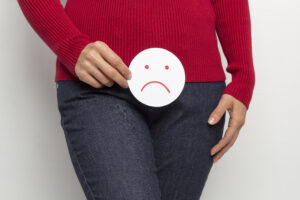Masturbation is a topic that many people are curious about, but feel embarrassed to ask questions about. This is understandable, as masturbation can be a sensitive topic. However, you don’t need to be shy! Dr. Waldron is here, to give you the answers to some of the most common questions people have about it. Keep reading for everything you need to know about masturbation!
What is masturbation?
Masturbation can be viewed in many ways. The experience is personal and unique for each person. It typically involves genital and/or other body part stimulation (e.g., breast, anus, thighs, etc.) for erotic arousal and orgasm. There isn’t a right or wrong way to do it. Ultimately, if it doesn’t hurt you or anyone else, is done in privacy or with others who are consenting then it is OK. For men, they rub their penis while for women it is often clitoral and vaginally focused. Most women are more stimulated by their clitoris rather than their vaginal opening. Some people use their hands and fingers for stimulation while others may use an object such as sex toys, rubbing oneself against a bed, or pillow, or stimulation by a shower head. Masturbation can be done alone or with a partner(s). Lubricants can also be used during masturbation. Be sure to use water-based lubricants as these tend to be less of an irritant to such sensitive areas. If trying something new, do it in a small area first to ensure that your body won’t be bothered by it. Some people use external visual imagery such as pornography, photos, movies, and magazines, while others may enjoy reading erotic literature to promote arousal. To be safe while masturbating, don’t use sharp objects or anything that could cut off blood flow, this would decrease an erection for those with penises.
What are the benefits of masturbation?
There are many benefits of masturbation. Research indicates that it improves, sexual, physical, and mental health. Benefits, as it relates to religious beliefs, maybe more complicated. For some religions, masturbation can be viewed as bad. Science and religion don’t always agree, so you do what works for you. We will talk more about myths later in this article. Here are the benefits:
- Regulates hormones
- Burns 4.2 calories a minute
- Boosts immune system
- Can relieve menstrual cramping
- Relieves tension headaches
- Strengthens pelvic muscles
- Relieve stress
- Help with sleep
How much is too much masturbation?
There is not a set number of times that is viewed as normal or abnormal. Some people masturbate daily, while others don’t at all. Both are OK. Too much is when it gets in the way of your daily functioning such as it makes you late to work, it distracts you from obligations, it is preferred over your partner (unless you have a mutual agreement about it), you injure yourself, or break a law such as getting found masturbating where others can see. The table below is from a study of masturbation frequency by age and gender. The percentages may be surprising to some people and validating to others. The table doesn’t reflect what is “normal,” only what was found in a sample of people.
Frequency of Masturbation by Age and Gender Groups
| Age | ||||||||
| 18-19 | 20-24 | 25-29 | 30-39 | 40-49 | 50-59 | 60-69 | 70+ | |
| Men | ||||||||
| In the last month | 61.1% | 62.8% | 68.6% | 66.4% | 60.1% | 55.7% | 42.9% | 27.9% |
| Lifetime | 86.1% | 91.8% | 94.3% | 93.4% | 92% | 89.2% | 90.2% | 80.4% |
| Women | ||||||||
| In the last month | 26% | 43.7% | 51.7% | 38.6% | 38.5% | 28.3% | 21.5% | 11.5% |
| Lifetime | 66% | 76.8% | 84.6% | 80.3% | 78% | 77.2% | 72% | 58.3% |
(Lehmiller, 2018 adapted from Herbenick et al, 2010a)
What if I think I have a problem with masturbation? Is there masturbation recovery treatment?
Here are some indicators that you may have a problem with masturbation:
- It feels out of control. You may have tried to stop or change but have been unable to
- You have shame before during or after masturbating
- You have gotten in trouble with work, your partner, or the law
- You have hurt your genitals
There is help when behavior feels out of control. Our practice has expertise in treating this challenge and can help. We use a model called Out of Control Sexual Behavior rather than using the term “addiction.” Sex Addiction isn’t a valid diagnosis. Use this link to make an appointment: https://sexualhealthandhealing.org/contact/.
Masturbation Myths Answered By An Expert
There are many misperceptions about what masturbation does to the body and what it doesn’t do. Here are some frequently asked questions answered:
Does masturbation cause infection?
The act of masturbation doesn’t cause infection. Having dirty hands, fingers, or objects that come into contact with genitals can cause infection. If using sex toys or other safe objects, be sure to clean them with gentle soap and water after each use. Further, for those with uncircumcised penises, it is important to keep the area under the foreskin clean. Women should ensure they wash their labia (skin folds of the vagina) to ensure cleanliness.
Does masturbation cause decreased testosterone?
It does not specifically, though when there isn’t sexual activity for a long period of time, it can increase. Increased testosterone doesn’t cause an issue physically. Nothing bad will happen. Some clients have described discomfort if they go too long without masturbating, but there won’t be any physical impact. It may be interesting to be curious about the feeling and wonder if the discomfort is truly physical or psychological. In my experience, it is psychological. Those who wake up with morning erections do so because there is a larger dose of testosterone released overnight. With age, testosterone decreases. Some have asked this question due to the difficulty of getting an erection or orgasm after masturbation when they are presented with a sexual opportunity. This can sometimes cause awkwardness between partners unless there is a line of open communication. This issue is more so related to the refractory period rather than hormones. After orgasm, men have a refractory period which is the length of time before their body is ready to have another erection. For women, they don’t have as long between their ability to have another orgasm, it is much shorter. The refractory period also becomes longer as people age.
Does masturbation cause erectile dysfunction?
Part of this question is answered with the previous question on testosterone levels. If you try to get an erection during your refractory period, then there will likely be challenges. If your masturbatory frequency is often, this will further shorten the time for you to achieve an erection. It becomes more important as you get older and testosterone decreases. Other things that do cause erectile dysfunction include cardiovascular issues, diabetes, endocrine problems, medications, as well as other substances. For instance, SSRI medications impact erectile functioning and libido for men and women. It is also common for men to struggle with erectile functioning while intoxicated.
Does masturbation cause ejaculatory duct obstruction?
Ejaculatory duct obstruction is not caused by masturbation. This is when both ducts are blocked, though fluid can still come out, but less than usual. When there are body changes, it is always a good idea to check in with your doctor.
Does masturbation cause problems with ovulation or pregnancy?
Masturbation doesn’t cause problems with ovulation or pregnancy. That said, should your doctor ever tell you to refrain from sexual activity during pregnancy, it is a good idea to clarify what this entails. You still may be able to participate in clitoral stimulation as part of masturbation but not allow anything to enter the vagina. This might be due to issues with your cervix. Some women become more aroused before ovulation, which can be a nice biological benefit. During pregnancy, your vulva (the term for all vaginal parts together), has more blood flow, which can increase sensitivity and sexual arousal. Your pelvic muscles are also tight. Masturbating helps to relax the muscles and provides some relief from any tension.
Does masturbation cause decreased sperm count?
Every time men masturbate, they release seminal fluid with sperm in it. Once released, the body makes more. Depending on the next time you release sperm again, it may impact sperm count. If trying to get pregnant, the doctor may suggest reducing masturbation to ensure there is a higher sperm count during sex making it more likely a sperm with reach the egg. It takes a couple of months for sperm to be fully regenerated. While that may seem like a while, production happens on a rolling basis and only one sperm is needed to fertilize the egg. There are millions in a teaspoon.
Does masturbation affect immunity?
Yes! It can boost it! The feel-good sensation you receive from an orgasm can help balance your cortisol levels. Immunity in this case doesn’t necessarily mean that you won’t get the next cold if you masturbate a lot. It helps release the chemicals in the body that help with recovery such as helping you heal from a workout.
Does masturbation cause hair to fall out?
It does not. There is no science linking masturbation to hair loss.
Does masturbation cause acne?
No. If you are working up a sweat doing it, then this might cause some clogged pores. Anytime you sweat, it is a good idea to clean it to prevent clogged pores which lead to acne.
Does masturbation cause weight loss?
It does not. You might burn some calories with rigorous movement, but it wouldn’t be the same as running or biking.
Does masturbation cause decreased muscle growth or decreased height?
There is no scientific evidence that it causes decreased height or impairs muscle growth.
Does masturbation cause weakness or decreased stamina?
One’s cardiovascular health is important and if it is poor, that can impact erectile functioning and blood flow to the vagina. Both could impact arousal and orgasm. For men, your refractory period may be more of an issue with stamina if there is concern about sexual performance with a partner soon after masturbating. One can also feel so relaxed after an orgasm that one might feel “weak” for a short time as part of the relaxation. This is normal and one would return to their baseline as the relaxed feelings subside. There is no impact on your overall muscle tone.
Does masturbation cause kidney, eye, or cancer issues?
It does not cause any of these issues. There is no scientific connection. Masturbation won’t make you go blind despite what people might say. No one has ever gone blind masturbating. If that were the case, there would be a lot more blind people according to the table above.
Does masturbation affect bones?
There is no connection between masturbation and bones.
Does masturbation cause memory issues?
No, it doesn’t. There is no scientific connection.
Is masturbation a sin in the bible?
This is a tough one to answer. People interpret the bible differently and religions present conflicting ideas about sex and masturbation. Often this produces shame. The scientific community believes that sex and masturbation are natural and healthy behaviors. Shame is often toxic to one’s mental and physical health. It may be helpful to speak to your religious leader for advice or other religious leaders to help you reconcile your thoughts about masturbation or sex and your faith.
Masturbation is a normal, healthy sexual behavior. It has many benefits, such as helping you learn about your own body and how to have an orgasm. It can also help you relieve stress and tension. However, like anything else, too much of a good thing can be bad for you. If you are masturbating frequently and it is interfering with your daily life, then it might be time to seek treatment. We offer education and treatment for people who struggle with excessive masturbation or other sexual behaviors. Contact us today if you want more information or would like to schedule an appointment.








